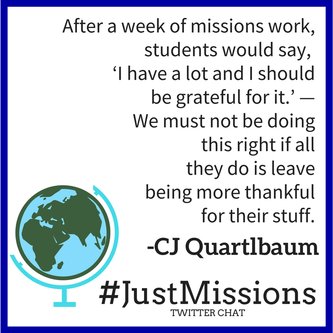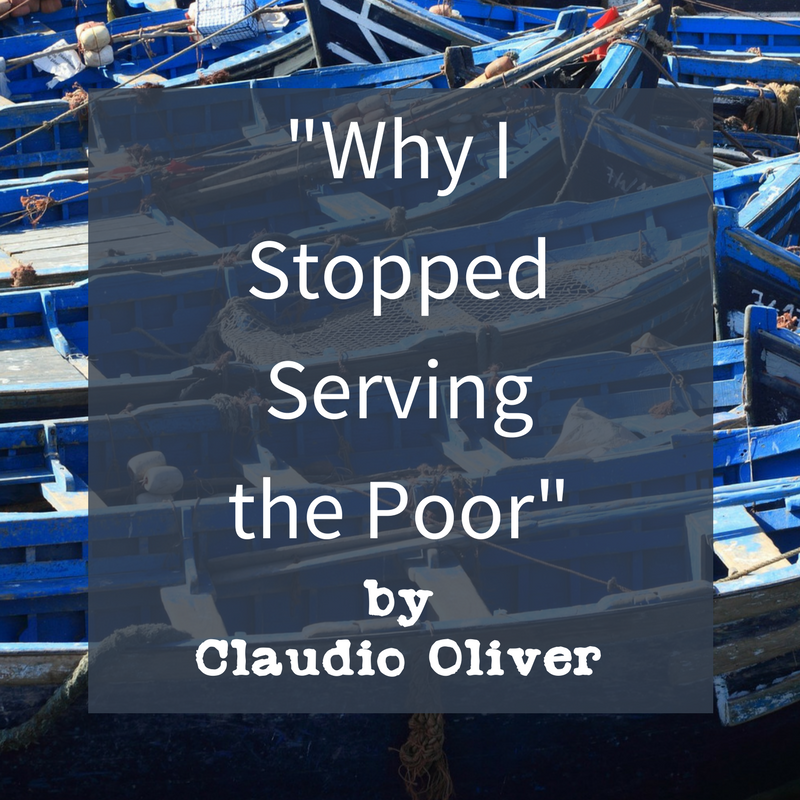 CJ grew up in Brooklyn, New York, in a culturally Christian home. “But I never remember reading scripture or praying together as a family,” he said. His mom is from Trinidad and his dad is from Harlem. They attended a church that he said gave him the idea that Christianity wasn’t a relationship. “Imagine the story of a missionary who goes and tells a group of people about Jesus. The first generation grasps a picture of who God is, but by the time you get to the third generation, they hate the faith because all they know are the rules. I grew up in the second generation where it was assumed we all knew the Gospel. We were taught that Christianity was kind of like a light switch you flip it on or off, but nothing in my heart was actually changed.” Even so, CJ became a spoken word artist performing at area churches. “That started when I was 13. My mother started sending me to a writing class on Saturday mornings. That’s when my love for writing really started to be nurtured. One of the writing blocks we did in the semester was poetry. I enjoyed it, and they published a few of my poems. I wrote a poem called ‘I Am a Christian’ and performed it at church. They loved it. So I started doing youth rallies with a group of friends all around the tri-state area. We were known as Word Play. God just used that vehicle ultimately to draw me to him. I was on a stage pointing to a Jesus I didn’t know,” he said. Although he admits he would memorize the Bible, at one point having the whole book of Ephesians memorized, “I knew what I was talking about, but it just never pierced my heart.” But on April 10, 2010, CJ went to a conference in Philly, and heard the Good News, for what felt like the first time. “I heard Matt Chandler preaching. He said, ‘Why we do what we do?’ Then he went through creation, fall, redemption. ‘You don’t become a Christian because you were born one, because you are a good person, because you do ministry …’ Every reason I had to say I was a Christian, he beautifully dismantled. In that moment the Holy Spirit opened my eyes, a day that will forever stand out in my mind,” he said. CJ then went to Western Seminary and studied Biblical Studies. “After seminary, I went back to finance because I didn’t know what else to do. The last job was just awful,” he said. CJ said that his wife ended up going on a women’s retreat where a friend told her she was leaving her job and that CJ should apply for it. “It turned out to be a job as a director of this short-term missions organization.” He applied and he got the job. CJ said that he started noticing things as he served as the City Director at CSM. “There were noticeable cracks in the system,” he said. “After a week of missions work, students would say, ‘I appreciate my things more.’ From June to August we have 96 students a week. I’m hearing the same thing: ‘I have a lot and I should be grateful for it.’ We must not be doing this right if all they do is leave being more thankful for their stuff,” he said. This caused him to make some intentional changes in how he ran the program. “Everything we do now is geared to having the Gospel at the center. The biblical definition of justice is the disadvantaging of yourself to see the flourishing of another. How can I get the students who come through to see that? I try to gear our trips toward this is the biblical definition of justice and what does that mean for them when they go back home,” he said. “A lot of our students tend to be suburban students from affluent communities. Once a week, I ask them a bunch of questions: What’s one thing that challenged you? One thing you noticed? What do you see here that is similar to your life just presented differently? I started to talk to students individually and poke at their faith a bit. Why are you here? Why do you believe what you believe? I started to realize that people can’t think through a lens of a worldview they don’t know. In America especially, Christians often think if I do these things then of course I’m a Christian. When people start to rattle off a resume rather than a relationship with Jesus then you see why they can’t view the world the way God has called us to view it,” he said. “When students first get here the first thing I tell them: ‘You are not here to save the city. There’s six thousand churches here, God is already here. The first thing you have to know is that you will not save the city. When you leave, these people are still here and still serving people every week which means you cannot do anything to damage their reputation.’ When I tell people there are six thousand churches they are always baffled,” he said. CJ’s advice for anyone going on a mission trip: “Educate yourself. Don’t walk into a place blindly thinking you know better than the people who live here, work here, thrive here, struggle here, flourish here,” he said. “Take time to be a missiologist to find out what’s going on in the area you are going to,” he said. “The suburbs are just as dark and violent a place, it just looks different. We are all broken people in need of Jesus. Figure out where those needs are in your town and in your area. There’s not only one way to serve people. Serving soup in a bowl: that’s just the easy way out, that’s just the low hanging fruit,” he said. CJ is a husband and father, and serves as the Church Planting Resident at Apostles Church Brooklyn. Be sure to check out CJ’s sermons from ACB and his article When Non-Believers Go on Missions Trips.
0 Comments
Leave a Reply. |
Gena's
|

 RSS Feed
RSS Feed

